I’ll do it later, I told my boss. No, you’ll do it right now, she replied.
And with that, I sat uncomfortably hunched over a coffee table in the hotel lobby we were staying at and aggressively smacked the keys to write out the email – eating crow and apologizing for my huge, companywide f*ck up! Talk about feeling my confidence and self-esteem crumble into dust!
The course of events that led to the mistake is still crystal clear in my head. It started with me feeling that my boss was playing a bit too close to my sandbox. You see, she and I had started a brand new company-wide program, one that had the close attention of our executive team. But soon after, she moved to another department to take on a different role on the same project, and I began to see myself as the new #1.
Even though my new #1 status wasn’t strictly true, I felt emboldened, as though I had the right and responsibility to drive things in my light. And in doing so, I didn’t take suggestions well or accept or consider alternative ways of doing things. I refused to see the bigger picture and instead became so laser-focused on my piece of the pie that I neglected to see all the moving pieces around me.
The final straw came down to this – I was responsible for gaining a wide range of approvals for many of the people affected by this project. I kept saying, ‘yeah, yeah, yeah – I got this’. But – I didn’t got this. In fact, I completely dropped the ball, left everyone hanging, and almost completely derailed the program.
It was this last course of events, dropping the ball and leaving everyone hanging, that prompted my then boss to sit my a$$ at that uncomfortable coffee table, hunched over, and write an apology email eating crow. Needless to say, my confidence and self-esteem were at an all-time low.
Sound familiar? Lack of confidence is something we all face at some point or another in our lives. Whether it’s due to The Judge, impostor syndrome, previous failures, or just a bad day, we’ve all been there. And when our confidence is low, it can seriously impact our work performance – and also bleed into our personal lives. As a result, we may compound the issue by procrastinating, making more mistakes, or even getting passed over for opportunities.
Building self-confidence requires taking action, even when we don’t feel like it. In this article, we’re going to explore practical ways to build confidence at work, its benefits, and understand how confidence leads to success.
Employee Confidence & Self-Esteem: The Key to Success

Confidence is that elusive and sometimes undefinable attribute that makes someone a great employee. It’s the difference between someone who just shows up to work and does their job and someone who goes above and beyond to make a positive impact.
Confident people are high-performing employees. They’re the ones who are regularly coming up with new ideas, taking initiative, exhibiting a can-do attitude, and looking for ways to add value. And guess what? Companies love confident employees!
When you’re confident in your abilities, it shows in your work. You’re not afraid to take on challenging tasks, and you regularly look for ways to improve your skills through training and positive feedback.
The interesting thing is, nobody can give you confidence. You have to feel it – and know it!
But what about self-esteem? Isn’t that the same thing as confidence?
I’m often asked whether confidence and self-esteem are the same things. The answer, of course, is that it depends on who you ask. For some people, self-esteem is all about feeling good about yourself, regardless of what others think.
Confidence, on the other hand, is about feeling capable and competent in achieving your goals. Personally, I believe that both confidence and self-esteem are essential, but for different reasons.
Confidence is necessary because it gives you the motivation to pursue your goals and that you can actually achieve them. Self-esteem is important because it gives you the strength to weather the setbacks and challenges that life will inevitably throw your way.
So which one is more important?
Both! It’s possible to have confidence and low self-esteem simultaneously, or vice versa, so it’s important to work on both at the same time. Each one adds to your overall success at work and in your personal life.
5 Powerful Ways To Instantly Boost Your Self-Confidence At Work

Being confident at work can sometimes feel like an uphill battle. Whether you’re gunning for a promotion or just trying to make it through the day, there are times when our confidence takes a hit. But there are also things we can do to boost our confidence and help us feel more secure in our abilities.
Here are 5 effective ways to instantly boost your confidence at work:
1. Make Yourself Comfortable
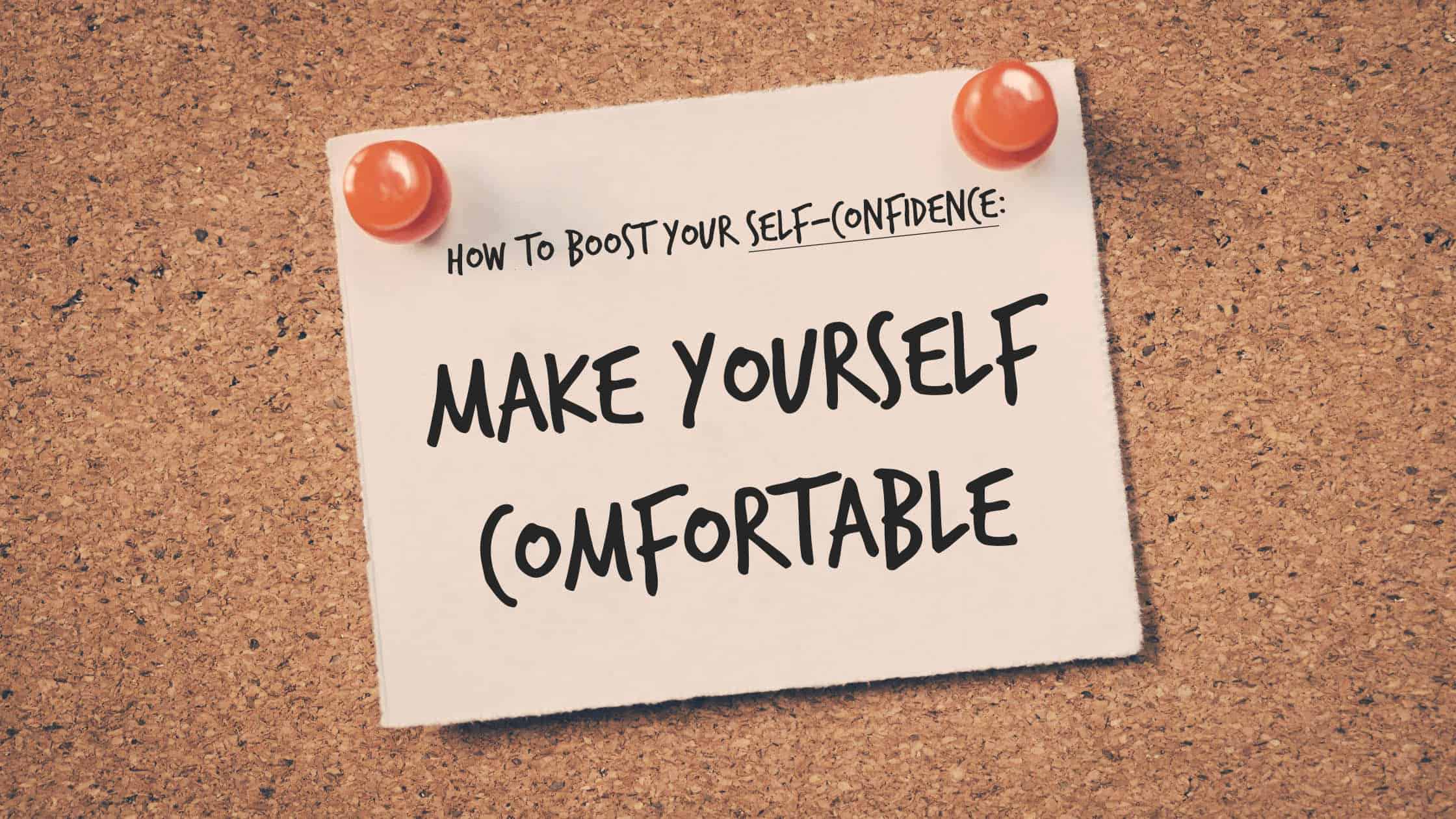
Comfort is one of my top values, and it shows up in various ways. It can mean being comfortable in my own skin or the clothes I’m wearing. It also means being comfortable with the people I spend time and associate with – or the job(s) I choose to work.
Comfort most certainly means being comfortable with the actions I take – or don’t take. All too often, I hear clients say that they do or don’t take action because they’re not comfortable. When I hear that, my next question is ‘what would be comfortable?’.
If you’re not challenging yourself, you’re playing it too safe. And while there’s something to say about being confident in what we do comfortably, we also see limited growth here.
Bottom line, if you want to feel more confident, you’ve got to take some chances, stretch yourself (I like to say ‘get yourself discomfortable’), learn from those new experiences, and watch your confidence grow from those lessons.
2. Speak your mind
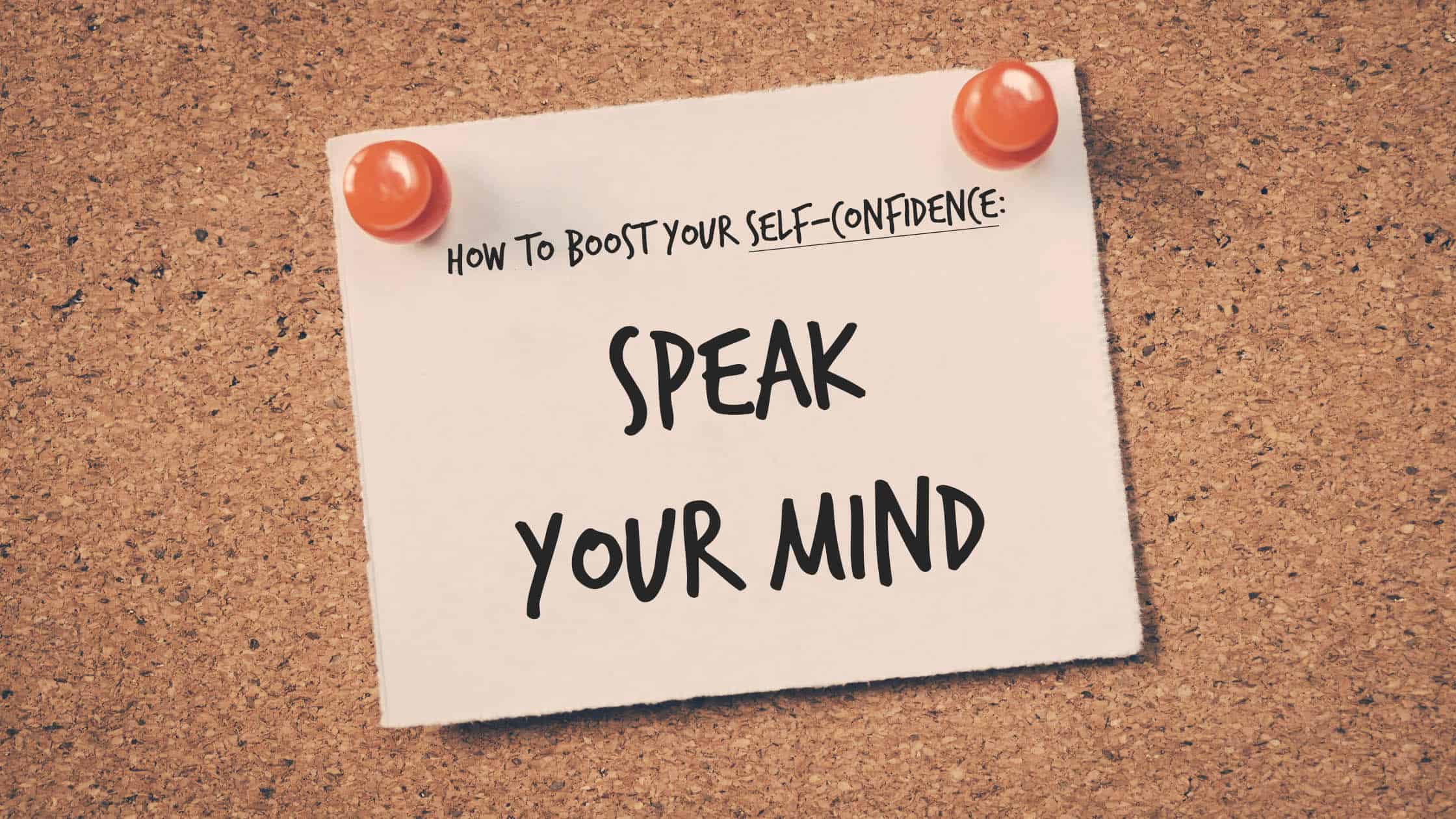
As a self-respecting New Yorker, it’s sometimes more natural for me to speak up than others. Growing up, whoever spoke loudest was heard! So yeah, I know how to speak up.
Picture this – you’re in a meeting where you have the perfect solution to the problem at hand, but you don’t speak up, and then someone else moves in and says the exact thing you were going to say. D*mnit!
It’s frustrating, but it’s also common. After all, speaking up in a room full of people can be difficult, especially when you’re not used to being the center of attention. However, research has shown that speaking your mind is one of the most effective ways to boost your confidence at work.
When you share your ideas, you’re not only contributing to the discussion, but you’re also helping to build your sense of competence. In other words, speaking up is good for both you and your team.
If speaking up isn’t quite as natural for you, consider what needs to be in place for you to feel confident enough to do so. Many people say they need to be well-versed on the topic. Or maybe prepare ahead of time. Others say identifying their elephant before speaking – such as ‘I might be offbase here’ or ‘I’m not usually one to speak up in a big group, and yet I’m going to do so here’ helps them feel confident. Figure out what works for you and give it a try.
3. Confident employees make eye contact
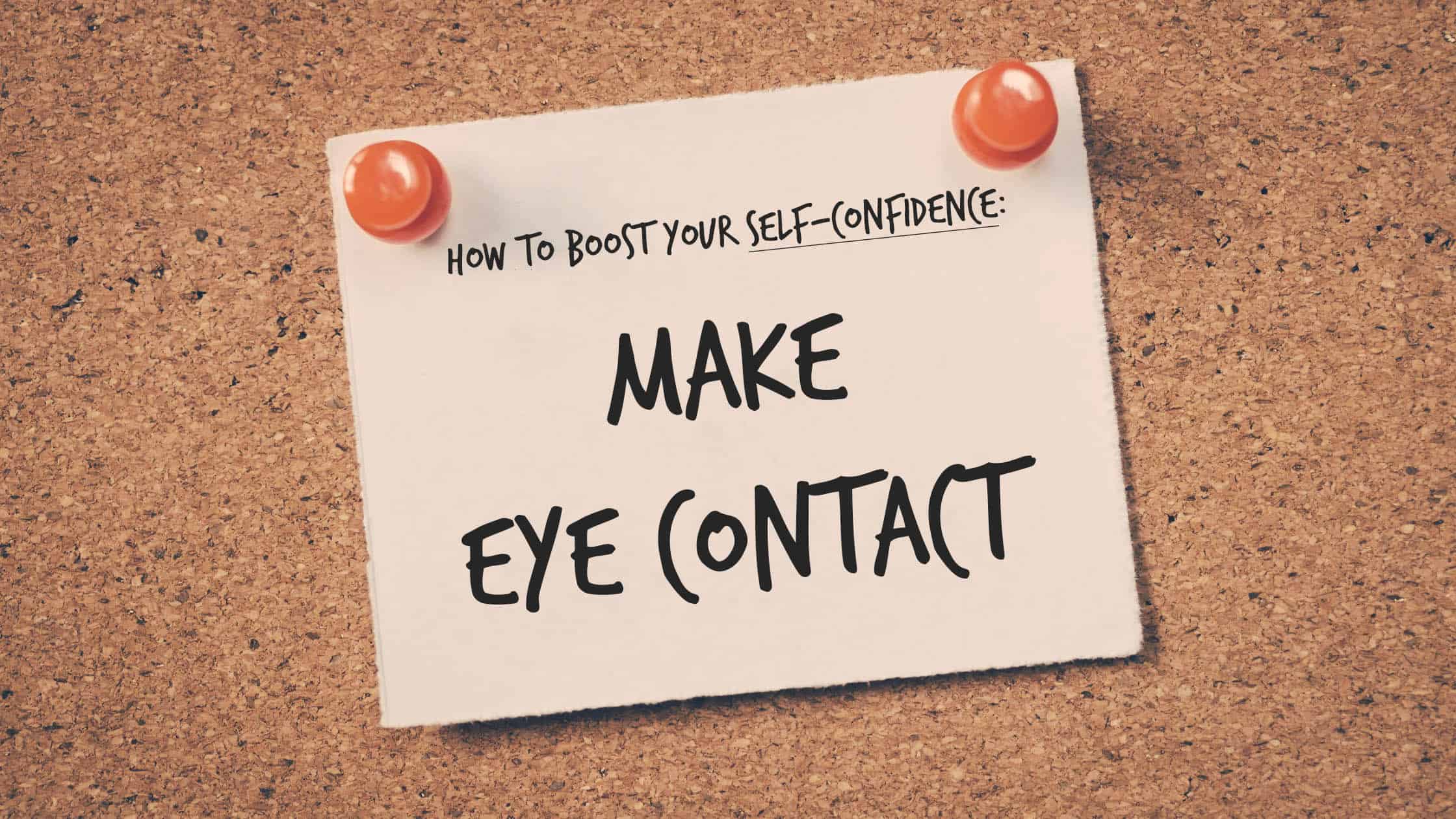
Eye contact is one of the most important aspects of body language, and it’s also one of the hardest to master. Whether you’re presenting to a room full of people or just having a conversation with your boss, making eye contact conveys confidence.
It shows that you’re engaged in the conversation, paying attention and that you’re comfortable speaking with other people. And while it may seem like a small thing, making eye contact can make a big difference in how confident you come across.
One trick to making eye contact is to focus on the person’s eyebrows. It sounds strange, but it actually works. Focusing on someone’s eyebrows allows you to make eye contact without feeling like you’re staring them down. Try it next time you’re in a meeting or giving a presentation, and see how it makes you feel.
4. Take a deep breath
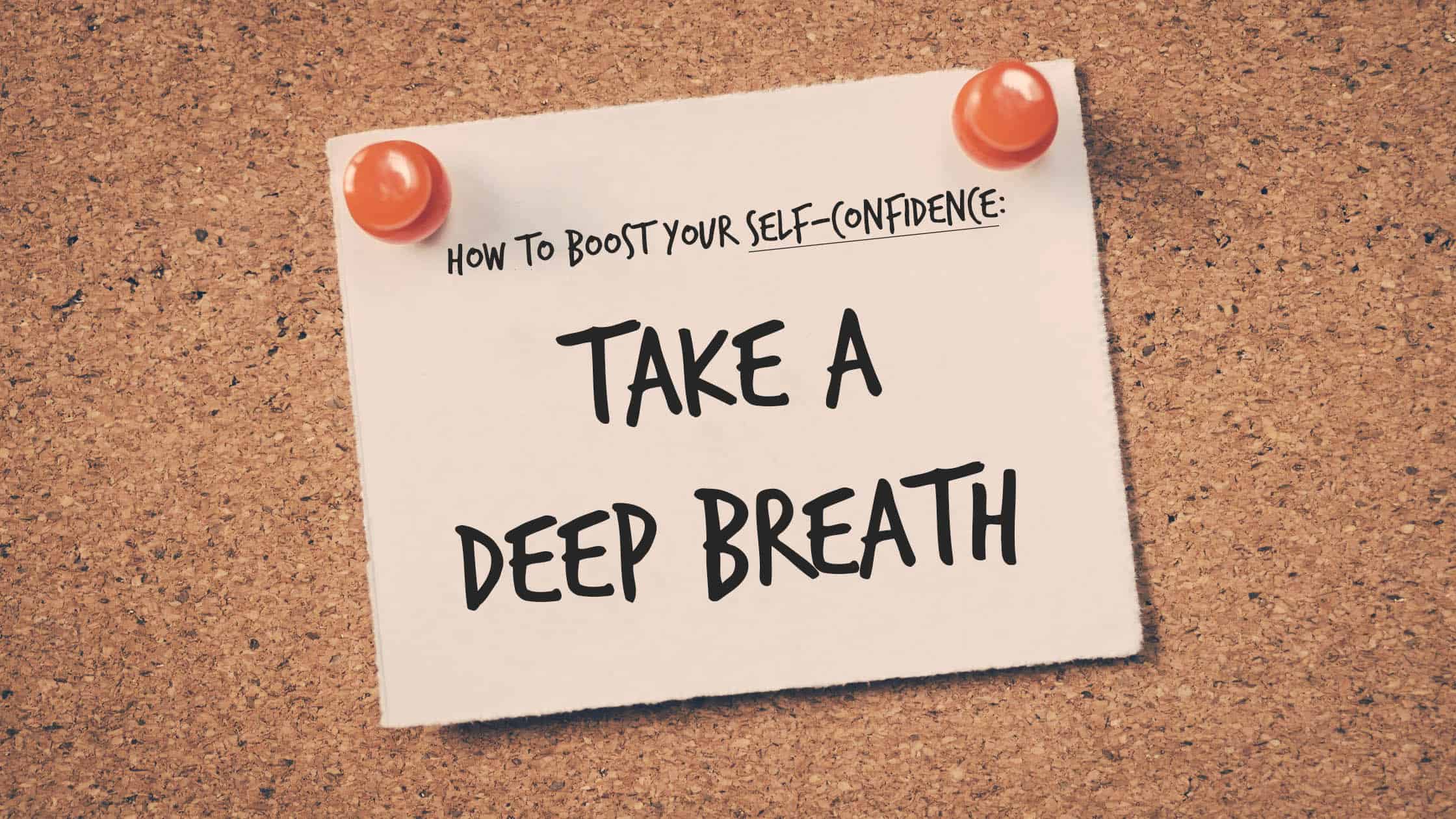
This one is simple in theory and can have a tremendous impact. When we’re feeling nervous or anxious, our breathing can become shallow and rapid. This might make us feel lightheaded and dizzy, which is the last thing we want when trying to exude confidence.
The next time you feel anxious or stressed, take a few deep breaths. Inhale through your nose and exhale through your mouth. Focus on breathing from your diaphragm, and try to slow down your breathing as much as possible. Some people benefit by counting the same beats on the inhale and exhale – for me, that number is usually 3-5.
You may not feel any different at first, but taking some deep breaths will help to calm your nerves and clear your head.
5. Smile

Smiling is often said to be the best medicine, and there’s a lot of truth to that. A smile is a nonverbal cue that can convey a range of emotions, from happiness and joy to sympathy and empathy. It’s also an incredibly powerful tool for boosting our confidence.
When we smile, we appear more approachable and attractive to others. We also tend to feel happier and less stressed. So next time you’re feeling down, try putting on a smile. You might be surprised at how much it helps.
Bonus Tip: Try career coaching
One of the best things you can do for your career is to invest in yourself. And one of the best ways to invest in yourself is to participate in career or leadership coaching. A good coach will help you identify your strengths and weaknesses, set goals, and create a plan for achieving them. By taking the time to develop yourself, you’ll not only be more confident at work, but you’ll also be more successful.
How To Turn Low Self-Esteem Employees Into Confident and Productive Ones

Not only is it important to build your own confidence at work, but for many people, building the confidence of their teams or employees is equally essential to be successful.
As a leader, you can impact your employees in various ways – both positive and negative. One of the most important things you can do is to help them boost their confidence. Building confidence equates to improved performance, which, in turn, leads to a more engaging, productive, and successful workplace.
And when you’re involved in creating that improved workplace, your own confidence soars again. That’s a win-win!
Here are 5 simple ways to boost your team’s confidence:
1. Recognize their achievements, both big and small
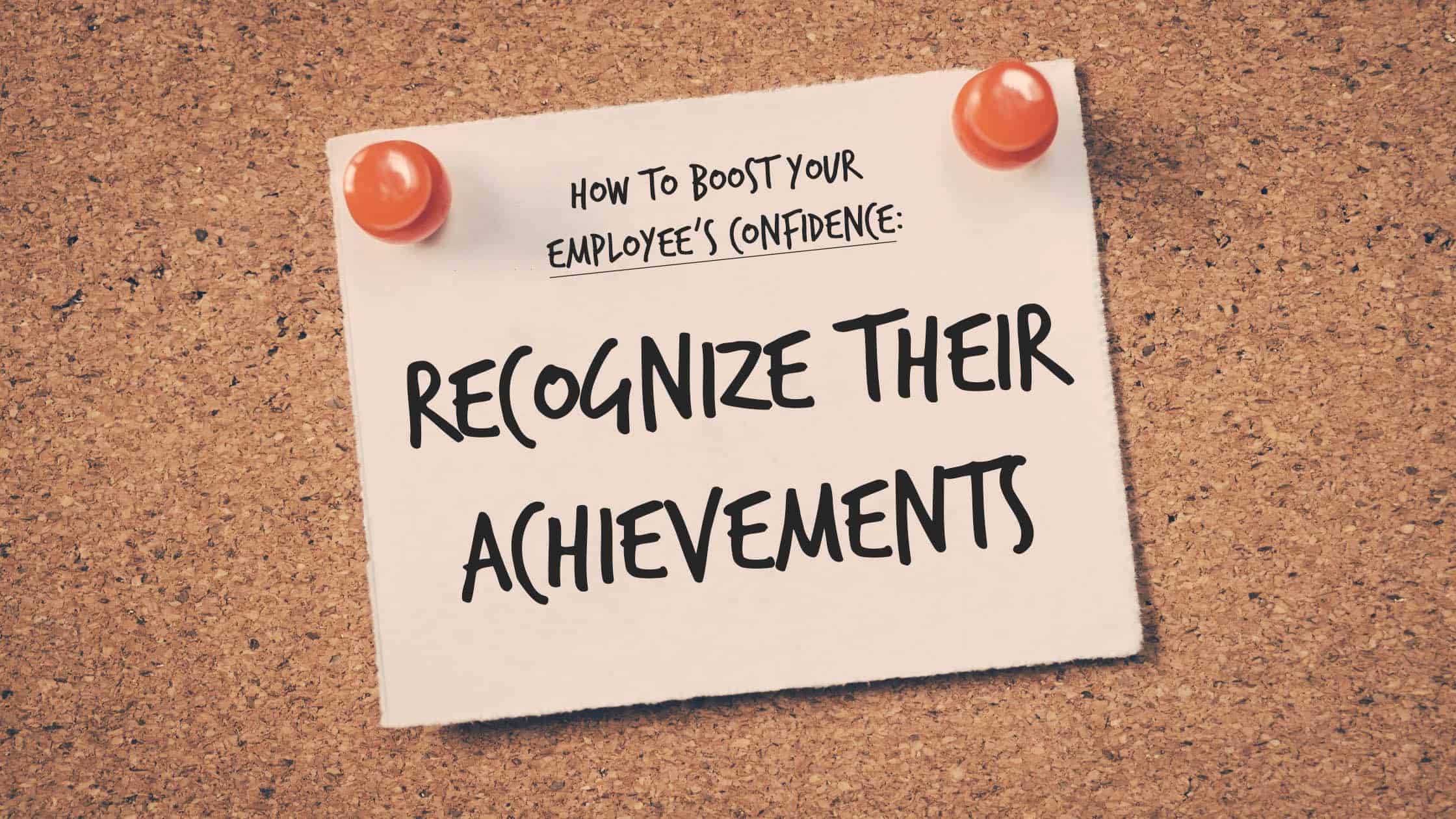
Everyone loves to feel appreciated. Whether it’s a pat on the back for a job well done or a simple “thank you”, a little recognition can go a long way in boosting someone’s confidence. And there’s no reason to reserve recognition for only the big accomplishments; even small things deserve to be celebrated.
In addition to praising accomplishments, it’s important to appreciate when people fall short or fail. Their effort is typically equal to or even greater in these moments – not to mention the great learning that often accompanies these experiences. Please don’t lose sight of this and recognize the positives in what might be considered a negative event.
Office workers are often bogged down by the day-to-day grind and can start to feel underappreciated. A little recognition can go a long way in making them feel valued and appreciated.
2. Encourage them to step out of their comfort zone
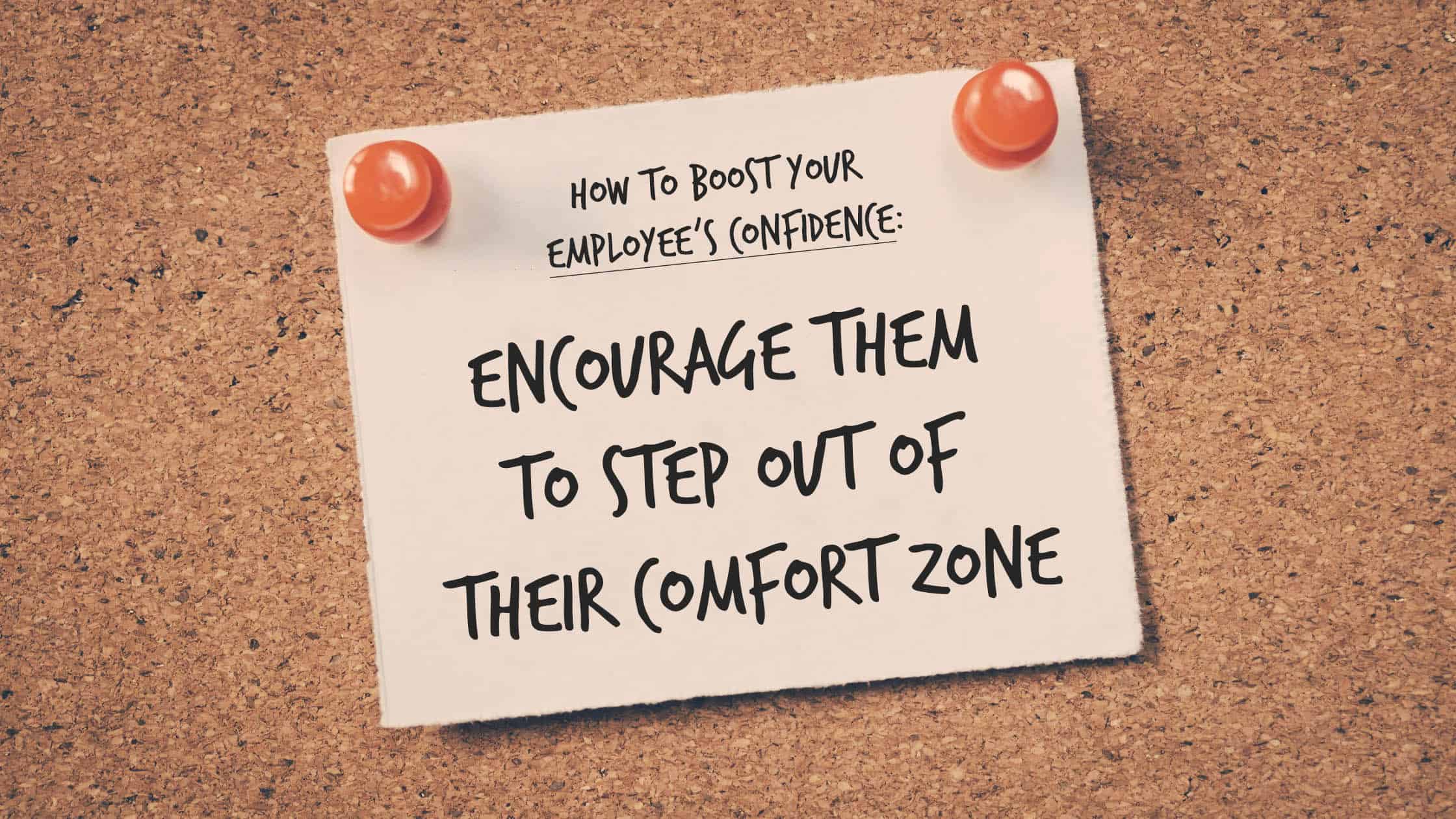
It can be easy to get stuck in a rut, especially when it comes to our careers. We find a comfort zone and stick to it, afraid to venture out and try new things. However, as I mentioned above, if we never step out of our comfort zone, we miss the opportunity to grow and learn new things. The same thing is true both for you and for your team.
Help your employees to get comfortable being discomfortable. Employees who have low self-esteem often lack confidence and are less willing to try new things. One of the best ways to boost self-confidence is to challenge them and foster an environment where trying new things is encouraged.
When employees realize that we trust them to handle new challenges, their confidence gets a major boost. Sometimes your trust and encouragement are just the nudges they need.
3. Help them set realistic goals
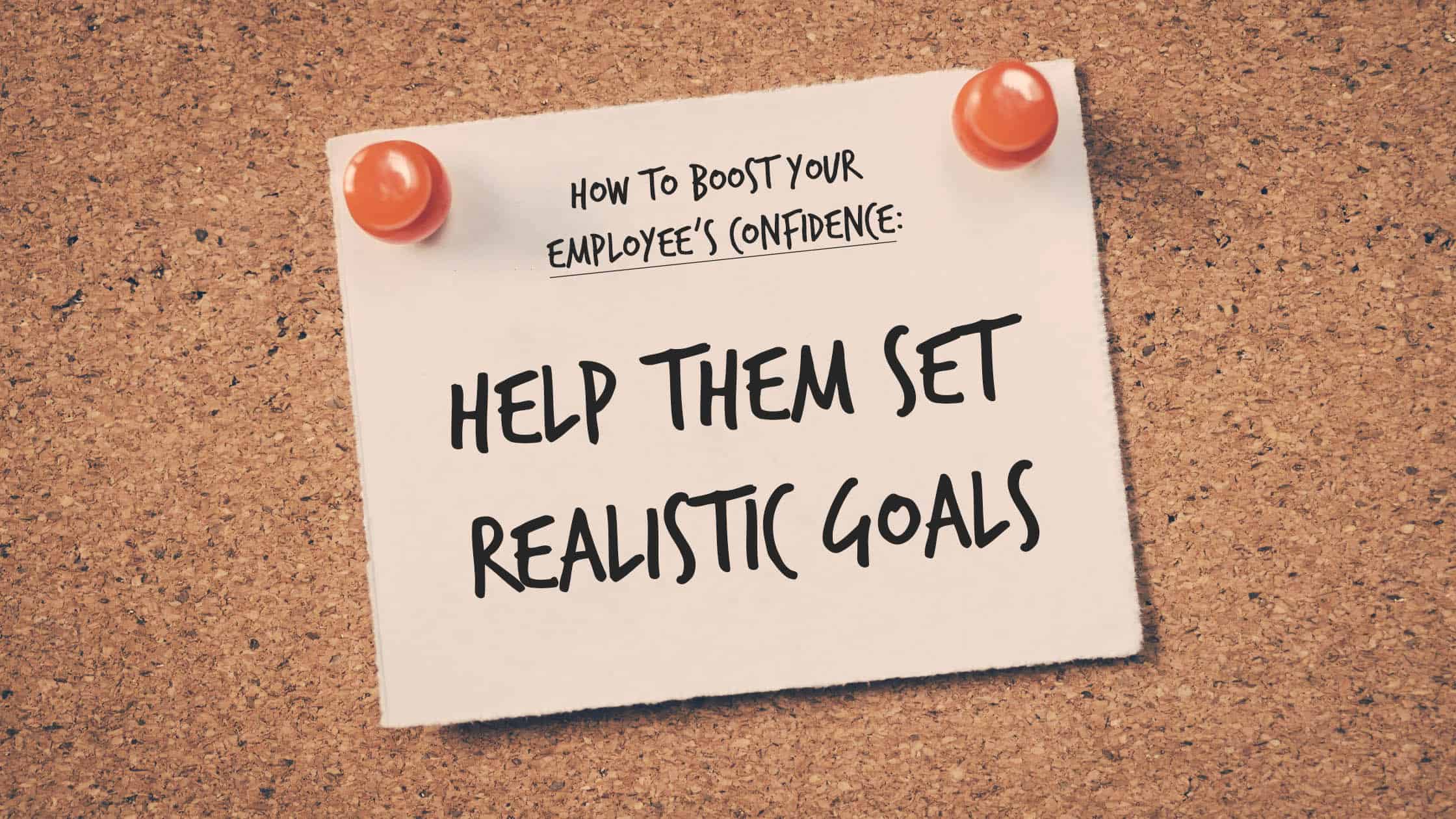
When it comes to setting goals, it’s important to strike a balance between ambition and realism. If employees’ goals are too lofty, they may become discouraged when they don’t see immediate results. On the other hand, if their goals are too small, they may not feel motivated to put in the extra effort required to achieve them.
As a leader, one of your tasks is to help your employees set realistic goals that stretch them without breaking them. By doing so, you can create a team of confident, engaged workers who are likelier to stick with you for the long haul.
4. Providing constructive feedback
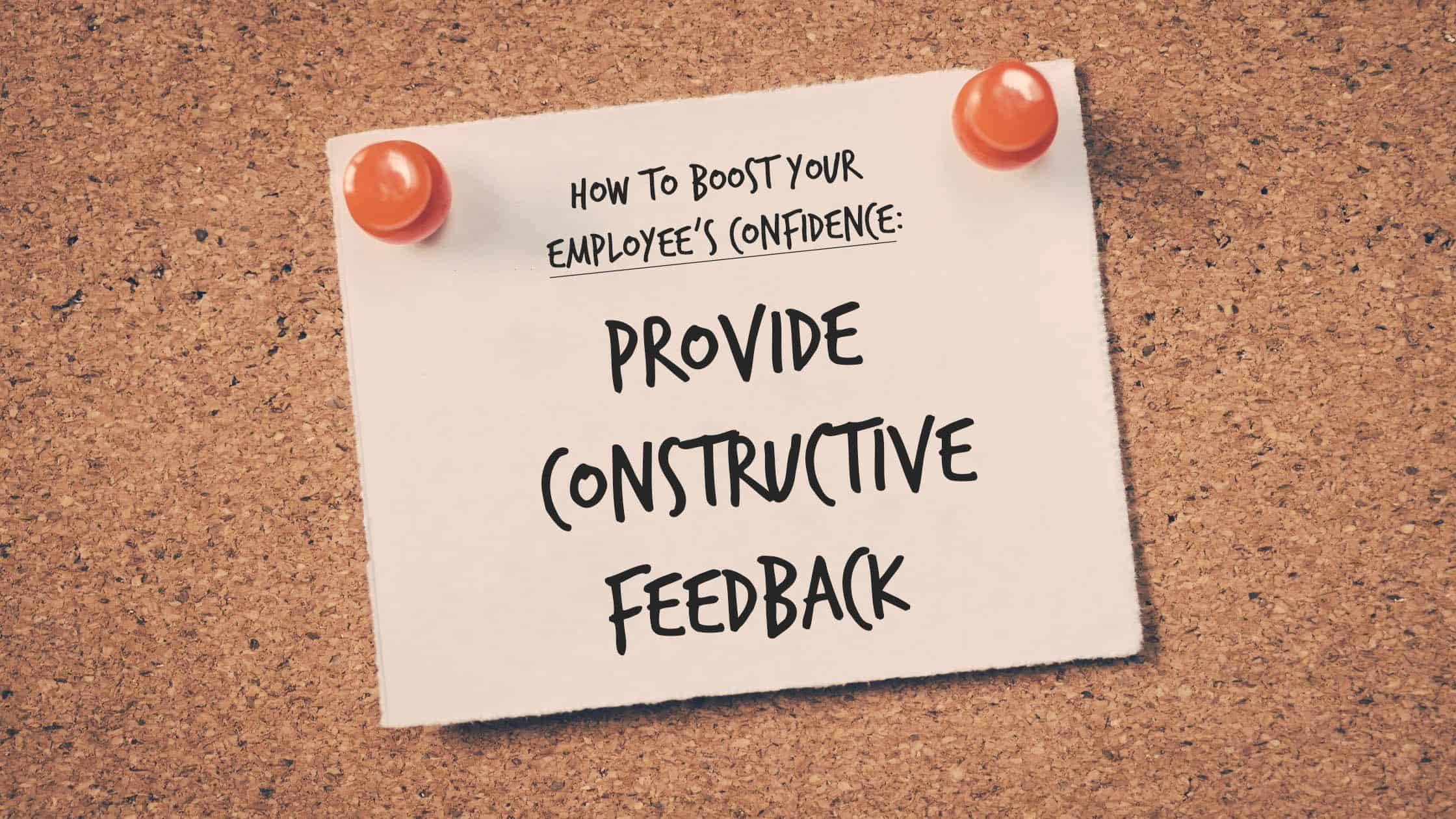
Delivering constructive feedback is instrumental and an absolute requirement of a strong leader, in my opinion.
However, constructive feedback is tricky, and can sometimes backfire. The key is to find that sweet spot of just the right amount of feedback, delivered in a way that is both helpful and encouraging.
One of my early mentors taught me The Love Sandwich. Start by focusing on the positive – what the person is doing well. This will help them feel good about themselves and be open to hearing what you have to say next. Then, point out an area where they could use some improvement. In closing, end with something constructive and encouraging. Let them know you have their back and are willing to support them.
A team member who feels like you’re truly invested in their development is more likely to be engaged and productive.
5. Be a positive role model yourself
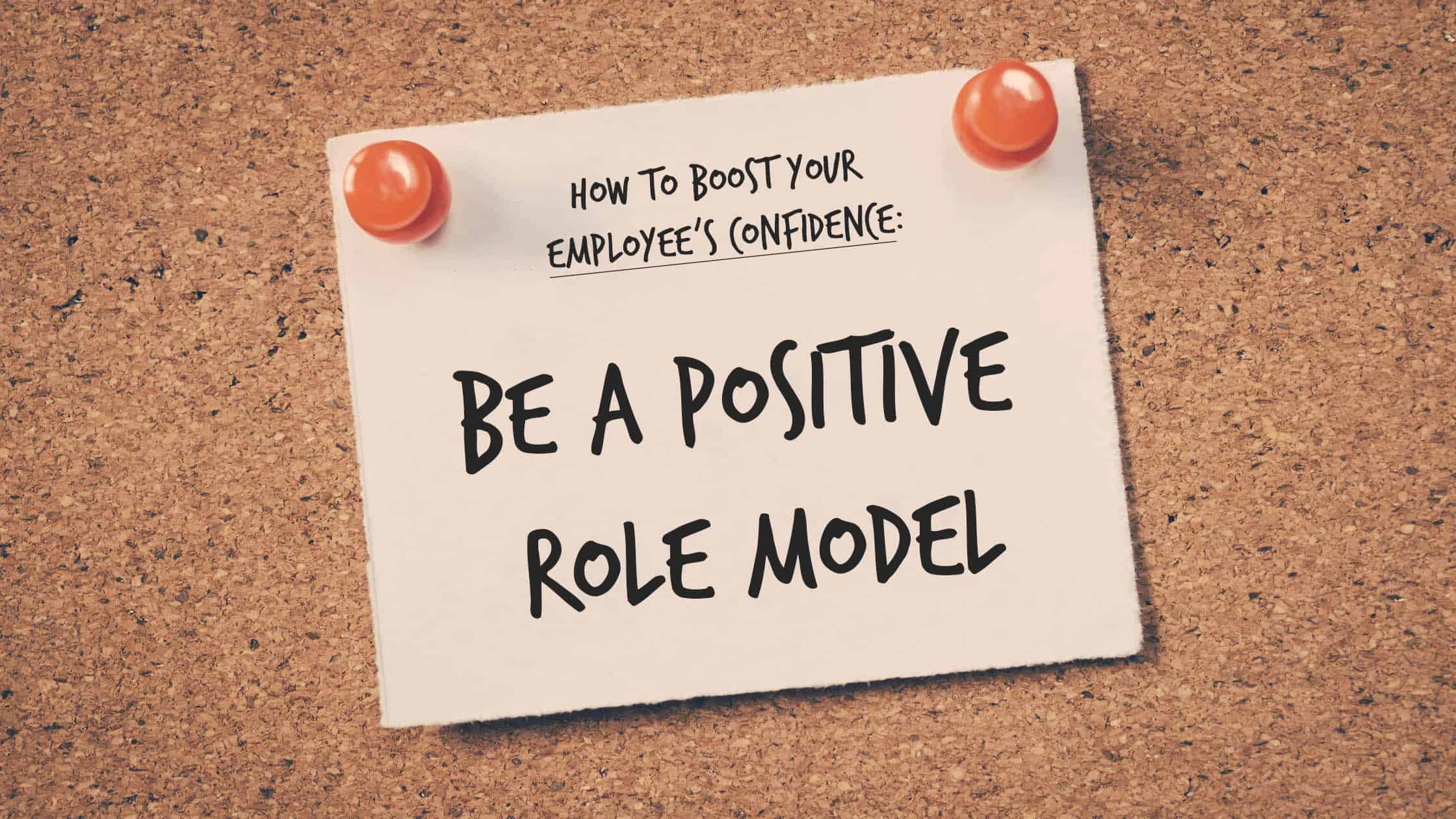
Have you ever heard the saying “a fish stinks from the head down?” It refers to leadership. If leaders at the top ‘stink’, it permeates down the entire team, department, or company. If you don’t know if you ‘stink’ – try asking people you trust.
Now, let’s continue assuming you don’t stink.
The old saying goes that “actions speak louder than words.” This is especially true when it comes to being a positive role model at work. Employees will take their cue from you, so if you’re confident and positive, they’re more likely to be as well.
If you want to create a team of confident, engaged, and productive employees, start by demonstrating confidence and positivity yourself. Show your team that you believe in them and their ability to overcome challenges.
Consider leveling up your management and leadership skills by participating in a career development program that focuses on building confidence in the workplace. With the right qualifications, you could make a big difference to the confidence levels of those around you – and, in turn, their productivity.
Summing It Up
It’s no secret that confidence is the key to success, especially in the business world. But it’s not always easy to have. If you’re looking for help to build your confidence (or the confidence of your team), book a call with me and we’ll talk about getting you there!
Did you like this article? You might also like:
Leaning In To Becoming A Beginner


